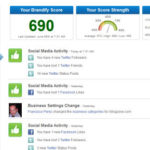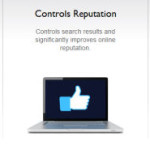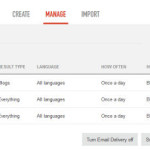Online reputation management is big business, and it’s an enterprise that more and more businesses are taking seriously. Small businesses and Fortune 500 brands alike are investing big portions of their marketing bucks on reputation management services, eager for the opportunity to control how their brand is portrayed on the Web. Given the prevalence of online review sites like Yelp, this is hardly a big surprise.
Online reputation management is not just the province of corporations, however. It’s also something that offers very real benefits to individuals. Certainly, the need is there. You can bet that any would-be employer (or even a financial institution) is going to Google your name before offering you a job. And what about asking someone on a date, a bank for a loan, or even moving into a new building or neighborhood? There are plenty of instances where folks are bound to get curious (perhaps a little nosy), and see what your Google reputation is really like. In case of financial institutions, they will most likely also verify your credit worthiness and your debt situation. That too is part of having a clean record, and for this particular scenario, you may want to make use of a credit score free service, just to make sure you are good to go.
Anyway, what all of this means is that it’s harder than ever to maintain a squeaky-clean record. There was a time when all you had to do was avoid DUI arrests and you were good to go. Now, a single embarrassing photo, taken at a frat party fifteen years ago, can be your undoing. If it makes its way onto Google, your job prospects — and perhaps that first date — are jeopardized!
Monitoring Your Reputation
There are, of course, some things you can do to fight back, and it all begins with monitoring your online reputation. The worst fate that could befall you is to walk into a job interview and get blindsided, totally ambushed by an unsavory Google entry that you didn’t know was there. If you have all the pertinent information, well, that’s a start — and at least you won’t be caught off guard!
The process of conducting Google, Bing, and Yahoo searches for yourself is important then. Do it on a regular basis, as a way of keeping abreast of what folks are saying about you online. Set up search engine alerts to let you know if any new listings should emerge.
Here are a couple of further pointers. One is to log out of Google before searching for yourself; because Google customizes its search results, it’s likely to show you all of your own social media and blog posts, rather than provide a more objective look at what others will see when they Google you. Also remember to check out spelling variants for your name; if your name is John Niel, there’s a decent change people will also search for John Neal, John Neil, and so on.
Finally, make sure you’re searching on social networks, as well. Remember, it’s not just Google and Bing that shape your online reputation. It’s Facebook and Twitter, as well. Use the internal search features of these social networks to see if anyone is using your name in vain!
Protecting Your Good Name
Monitoring your online reputation lets you know where you stand, but it’s also important to be proactive in defending your good name. Here it is important to remember one of the fundamental points of online reputation management. Most Internet search engine users never click past the first page of results — so if there ever are any negative listings, you want to make sure they’re on the second or third or fourth page of search results, in which case they’re essentially non-issues.
The trick, then, is to suppress negative listings — something you can do by inundating the search engines with positive information about yourself. You’re effectively building a wall here, a defensive wall of positive press, surrounding yourself and protecting your reputation. Start by snatching up the best online real estate. Let’s return to our example of John Niel; what Mr. Niel needs to do is buy the domain rights to JohnNiel.com, .org, .net, and so on. These are the domains that are likely to “rank” the best for your name, so if you’ve got them, they’re good defenses against any potential negative listings.
Next, fill the Web with as much positive content about yourself as you are able. Publishing content and blog entries to those domains you just bought is important, but don’t forget about social media. Maintain an active presence on Facebook, Twitter, Pinterest — basically, as many social networks as you are able. The more frequently you are able to publish content, the better off your reputation will be.
Remember that negative listings could appear on the Web at any point, and there’s really nothing you can do to stop them. Your best bet is to seek to suppress them, and ensure that they remain non-issues, stuck somewhere on page 3 of Google and never really interfering with your own online reputation! This requires constant vigilance, both in monitoring and in content creation, but that’s a small price to pay for something as valuable as a good reputation.









Comments are closed.